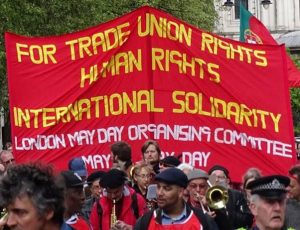Poem: India’s post-WW1 ‘expectations dashed and shackled by iron-hearted measures’.
Author’s Note
Following India’s great service to Britain during the First World War, there was an expectation that such a sacrifice would be rewarded with greater self-determination and even dominion status.
Regretfully, this was not to be. Instead those expectations were dashed by an iron repression exemplified by the massacre at Amritsar.
As for myself, I find it sad that today’s society appears just as ridden by dissension so increasingly I find my poems try to seek a bridge over the divides. In the case of this present poem, I hope the reader will note how I have tried to get inside General Dyer’s head in order to try to understand his extreme reaction but also how the poem moves from the red of the sun’s heat and people’s rage to the verdant green of the memorial garden, for it is only in the rosemary of remembrance and knowledge that we can collectively begin the climb to reconciliation and wisdom.
Murder in the Bagh (Amritsar, April 13th 1919)
In downtown Amritsar
years ago as now
there’s a stretch of walled off
ground, a bagh or garden even
where soldiers came with bullets
to cut, dig and plough.
General Dyer was commanding;
born under India’s grilling sun,
his upright back, iron grey hair
and brick red face
freely professing his services,
the years of duty done.
For this was British India
where few held the many in thrall,
the air heavy with rumour,
plots, sabotage, uprisings
and fiery freedom fighters
itching to heed the call,
for what was India to do,
having served the Raj with
loyalty, troops and treasure
in the bloody First World War,
finding herself now shackled
by iron hearted measures.
Indeed fevered lootings had
broken out only days before,
with five Europeans killed,
a bank trashed and a Miss
Sherwood thrown from her bike.
The General prescribed martial law.
Hours later the sun
was now a brand, a molten blot,
the air tinder dry. Had anyone
dared to stare it in the face
they might well have seen
an augurer, his eye blood shot.
When the General heard
of a gathering expressly banned
in the Bagh, enraged, he ordered
his fifty rifles March! Fire!
no warning given. Men,
women, children shot out of hand.
I had to teach a moral lesson,
in the aftermath the general said,
by barring all the exits,
directing fire where the crowd
was thickest, my bullet
points marked on the hundreds dead.
He was coming from a place
dark, steeply inclined,
known for its tunnel vision
which gives a tendency
to fixate and demonise
those your fellow kind.
Incensed by that lady’s
fallen honour, he salved her hurt
by making native passers-by
do penance at the scene
by crawling on all fours
down the walkway’s abject dirt.
When, General, you sped to the Bagh
with Lee Enfield in tow,
saying you were intent
to save the Raj by nipping
another Mutiny in the bud,
the reality was less than so
for while the Lords and others
were happy to defend
and bestow a handsome sum,
the Commons demanded
retirement to England
that career at an end.
Today, were you to stand
with an informed eye
in the Bagh by the entrance
where the soldiers stood,
you would be at a crime scene
inclined maybe to ask Why?
and What possible good
could crop in a garden
watered by innocent blood?
Then moving on, note
the pock-marked walls
where the bullets flailed,
the imposing memorial column,
the soldiers in topiary
caught in the rays,
rifles outstretched,
barrels ablaze
amidst the boxtree hedging;
trees and lawns,
enshrining a memory,
deep-rooted, ever green.
Wayne Carr
12th April 2021
Lord Sheikh’s letter to the PM requesting an official apology

The following letter from Lord Sheikh has been forwarded by the Indian Workers Association (GB).
Letter from Members of House of Lords and House of Commons
8th March 2021
The Rt Honourable Boris Johnson MP
Prime Minister
Number 10 Downing Street
SW1A 2AA
Dear Prime Minister,
We the undersigned members of House of Lords and House of Commons would like to write to you regarding the Jallianwala Bagh massacre which occurred on 13th April 1919.
On that day Indians of all ages and religions, which included Muslims, Hindus, Christians and Sikhs, gathered at the Jallianwala Bagh to celebrate the festival of Baisakhi and also peacefully protest at the arrest of two national leaders.
Acting Brigadier-General Reginald Dyer ordered his soldiers to block the main entrance of the garden and they opened fire on the unarmed civilians without warning. The firing was also directed towards the narrow open gates through which people were trying to escape. Winston Churchill referred to these events as “monstrous”.
It has been reported that 1650 rounds were fired and the official figures state 379 died, 1200 were wounded of whom 192 were seriously wounded. The exact numbers will never be known, and figures estimated by the Indian National Congress were higher than these.
Her Majesty Queen Elizabeth II visited the memorial at Jallianwala Bagh in 1997 and then Prime Minister David Cameron visited in 2013 describing the massacre as “deeply shameful”.
Successive governments have failed to properly acknowledge the scale of loss and trauma of the events that took place on 13th April 1919 and there are people all over the world who are asking the Prime Minister of the United Kingdom to make an official apology for the massacre.
It is soon the anniversary of this abhorrent event and in view of the fact that you are vising India shortly, we feel this would be very appropriate in giving proper closure to those affected across the world.
A proper apology would, to a certain extent, be accepting our historic mistake of a merciless killing of innocent Indians at the hands of the British. This will hopefully enable us to properly develop British-Indo relationships.
We would kindly ask you to consider issuing the apology in the House of Commons and such an action would be greatly appreciated by many.
Kind regards,
Your Sincerely,

The Lord Sheikh



